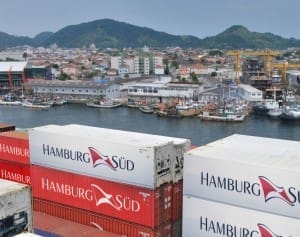ARGENTINA, one of the largest beef exporters to China, has imposed a surprise 30-day ban on all beef exports out of the South American nation, in an effort to contain domestic Argentinean meat prices.
The move has been rumoured for some days around the Australian meat industry, but confirmation only surfaced today.
 A presidential representative democratic republic (code for benign dictatorship), Argentina has a long history of imposing sudden bans on the country’s beef exports, for up to 12 months, in order to avoid unrest among its beef-obsessed citizens by subduing beef prices.
A presidential representative democratic republic (code for benign dictatorship), Argentina has a long history of imposing sudden bans on the country’s beef exports, for up to 12 months, in order to avoid unrest among its beef-obsessed citizens by subduing beef prices.
Given that some 70 percent of Argentina’s annual beef exports are currently directed into China, market watchers are anticipating an almost instant response in imported beef markets in China, as a result of the huge void that has been created.
Today is the first day of the SIAL food trade show in Shanghai – the first since COVID – and the event’s beef section would be ‘alive with the news’ about Argentina’s market withdrawal, Beef Central was told this afternoon. We will report back in coming days as more details unfold.
Election strategy
The Argentinean Government’s ban on exports of beef is its latest unorthodox move to try to contain runaway inflation, currently approaching 50 percent annually.
Quoting an Argentine Production Ministry statement released late Monday, Bloomberg reported that the country’s President Alberto Fernandez told a key beef export association that its members will not be allowed to sell beef abroad for 30 days. In that period, the government will determine a set of emergency measures for the sector, the statement said.
“The measure shows that the government is willing to sacrifice much-needed export dollars to appease local consumers ahead of a key mid-term election later this year,” Bloomberg’s report said.
Argentina’s beef exports in 2020 totalled about US$3 billion in value, but the government may be more focused on the political cost of falling domestic consumption caused by high beef prices, the report said.
The president expressed his concern over the sustained growth in domestic beef prices over the last few months, the departmental statement said. Discussion at the meeting also included “possible steps to restrict speculative practices” and fiscal evasion.
Argentine beef exports have been surging for four years and reached a record in the first two months of 2021, according to beef representative group Ciccra.
The latest Argentine export suspension followed similar events between 2003 and 2015 under the presidencies of Nestor Kirchner and his successor, Cristina Fernandez de Kirchner, which led cattle numbers to plunge as market prices dropped, and the country losing share in the international market.
The government last month formalised a registry to ensure domestic supplies of beef at accessible prices as well as monitor shipments and supplies at home.
Australian exporters with specialist knowledge about the China market told Beef Central this afternoon that the Argentinean decision would have immediate repercussions in the China market.
Argentina’s withdrawal, coupled with much lower volumes out of Brazil, and domestic pork supply issues would stress China’s meat protein supply, the trader said.
“If Argentina was going to pick a month to do this, May was probably it, because this is a low consumption period in China as the (northern hemisphere) weather is starting to get hot. Red meat goes off the boil, and the Argentineans know that – they are not going to irritate their largest customer, any more than necessary. The timing of this decision appears to be somewhat strategic.”
Domestic squeeze on protein
China itself was battling a second wave of African Swine Fever which was also exerting considerable pressure on protein supply, the trade source told Beef Central.
“We are hearing that this wave of ASF is way worse than the first,” he said.
“They gave up 35pc of their pig herd to the disease over the past 18 months,” he said. “They have since regained about a third of what they lost through new pig breeding and growing programs, but have now given all that gain back again – plus some more – in the latest wave of disease over the past three months.”
“To this point, the Chinese have done a really good job of keeping that under wraps, but this latest Argentinean development will only expose China’s protein deficit further. It’s suggested that China has now sold down about half of its frozen pork stockpile, so they are going to be very short, very soon,” he said.
“The Brazilians are currently US$1.30 to US$1.70/lb (CIF) higher in round cut beef prices into China, compared with anything we saw over the last two years. And there has been no sign of Brazilian prices softening as the year has gone on, as they have in the past.
“That’s because Brazilian slaughter numbers are now way down, having killed one and a half times their normal production last year, due to China demand. That has left a huge hole in Brazil’s herd, lifting prices this year.”
“And the world has changed a lot for Australian beef exporters. Some are shifting a lot more product into emerging markets like Vietnam; and Japan is coming back into the game at better prices. Suddenly Australia is not as exposed to China as it was earlier.”
